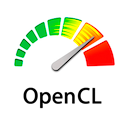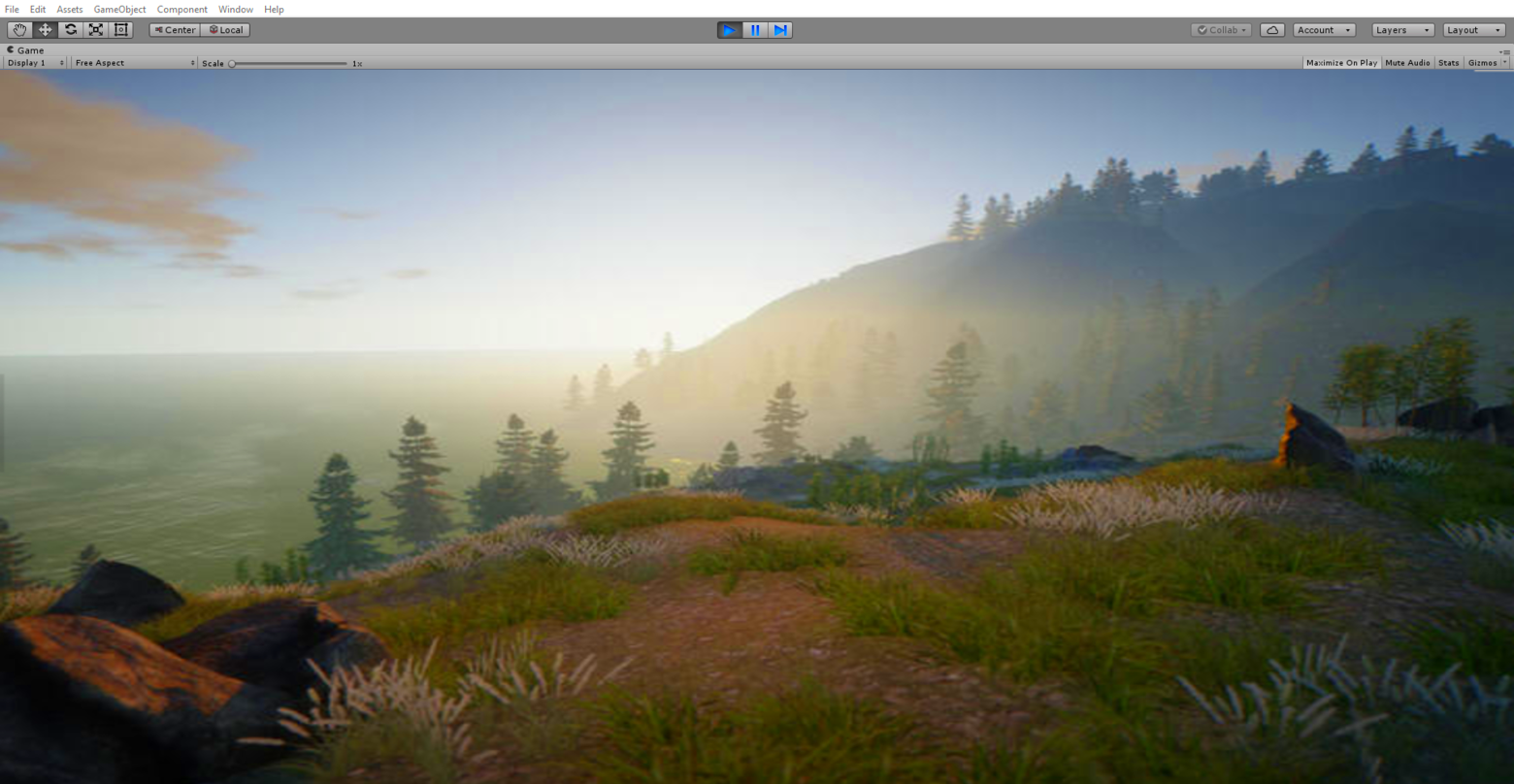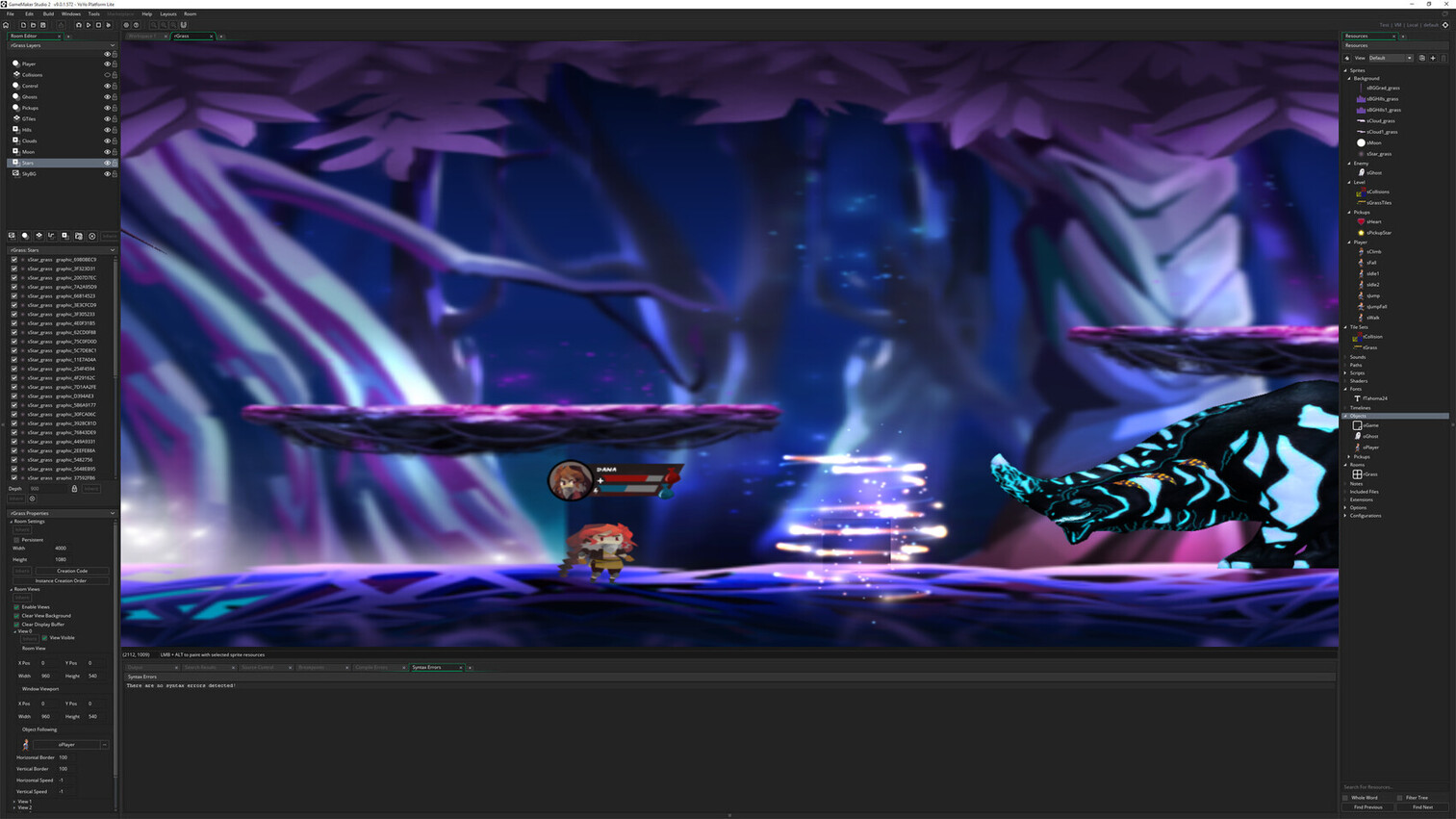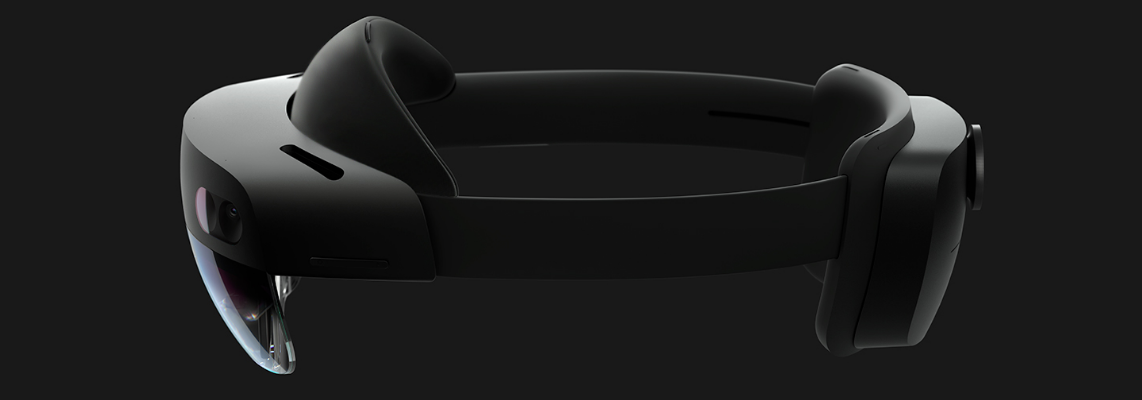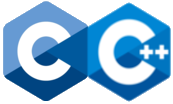A guide covering OpenCL including the applications, libraries and tools that will make you a better and more efficient OpenCL development.
Note: You can easily convert this markdown file to a PDF in VSCode using this handy extension Markdown PDF.
Open Computing Language (OpenCL) is an open standard for parallel programming of heterogeneous platforms consisting of CPUs, GPUs, and other hardware accelerators found in supercomputers, cloud servers, personal computers, mobile devices and embedded platforms.
Khronos Technology Courses and Training
Introduction to Intel® OpenCL Tools
Introduction to OpenCL on FPGAs Course | Coursera
Compiling OpenCL Kernel to FPGAs Course | Coursera
RenderDoc is a stand-alone graphics debugger that allows quick and easy single-frame capture and detailed introspection of any application using Vulkan, D3D11, OpenGL & OpenGL ES or D3D12 across Windows, Linux, Android, Stadia, or Nintendo Switch™.
GPUVerify is a tool for formal analysis of GPU kernels written in OpenCL and CUDA. The tool can prove that kernels are free from certain types of defect, including data races.
OpenCL ICD Loader is an Installable Client Driver (ICD) mechanism to allow developers to build applications against an Installable Client Driver loader (ICD loader) rather than linking their applications against a specific OpenCL implementation.
clBLAS is a software library containing BLAS functions written in OpenCL.
clFFT is a software library containing FFT functions written in OpenCL.
clSPARSE is a software library containing Sparse functions written in OpenCL.
clRNG is an OpenCL based software library containing random number generation functions.
CLsmith is a tool that makes use of two existing testing techniques, Random Differential Testing and Equivalence Modulo Inputs (EMI), applying them in a many-core environment, OpenCL. Its primary feature is the generation of random OpenCL kernels, exercising many features of the language. It also brings a novel idea of applying EMI, via dead-code injection.
Oclgrind is a virtual OpenCL device simulator, including an OpenCL runtime with ICD support. The goal is to provide a platform for creating tools to aid OpenCL development. In particular, this project currently implements utilities for debugging memory access errors, detecting data-races and barrier divergence, collecting instruction histograms, and for interactive OpenCL kernel debugging. The simulator is built on an interpreter for LLVM IR.
NVIDIA® Nsight™ Visual Studio Edition is an application development environment for heterogeneous platforms which brings GPU computing into Microsoft Visual Studio. NVIDIA Nsight™ VSE allows you to build and debug integrated GPU kernels and native CPU code as well as inspect the state of the GPU and memory.
Radeon™ GPU Profiler is a performance tool that can be used by developers to optimize DirectX®12, Vulkan® and OpenCL™ applications for AMD RDNA™ and GCN hardware.
Radeon™ GPU Analyzer is a compiler and code analysis tool for Vulkan®, DirectX®, OpenGL® and OpenCL™.
AMD Radeon ProRender is a powerful physically-based rendering engine that enables creative professionals to produce stunningly photorealistic images on virtually any GPU, any CPU, and any OS in over a dozen leading digital content creation and CAD applications.
NVIDIA Omniverse is a powerful, multi-GPU, real-time simulation and collaboration platform for 3D production pipelines based on Pixar's Universal Scene Description and NVIDIA RTX.
Intel® SDK For OpenCL™ Applications is an offload compute-intensive workloads. Customize heterogeneous compute applications and accelerate performance with kernel-based programming.
NVIDIA NGC is a hub for GPU-optimized software for deep learning, machine learning, and high-performance computing (HPC) workloads.
NVIDIA NGC Containers is a registry that provides researchers, data scientists, and developers with simple access to a comprehensive catalog of GPU-accelerated software for AI, machine learning and HPC. These containers take full advantage of NVIDIA GPUs on-premises and in the cloud.
NVIDIA cuDNN is a GPU-accelerated library of primitives for deep neural networks. cuDNN provides highly tuned implementations for standard routines such as forward and backward convolution, pooling, normalization, and activation layers. cuDNN accelerates widely used deep learning frameworks, including Caffe2, Chainer, Keras, MATLAB, MxNet, PyTorch, and TensorFlow.
NVIDIA Container Toolkit is a collection of tools & libraries that allows users to build and run GPU accelerated Docker containers. The toolkit includes a container runtime library and utilities to automatically configure containers to leverage NVIDIA GPUs.
If you would like to Donate to the Godot Project
If you would like to Donate to the Blender Project
Checkout AWS Lumberyard(based on CryEngine)
Unreal Online Learning is a free learning platform that offers hands-on video courses and guided learning paths.
Unreal Engine Authorized Training Program
Unreal Engine Training & Simulation
Getting Started with DirectX 12 Ultimate
Getting Started with Apple Metal
Game Design Online Courses from Udemy
Game Design Online Courses from Skillshare
Learn Game Design with Online Courses and Classes from edX
Game Design Courses from Coursera
Game Design and Development Specialization Course from Coursera
Unreal Engine is a game engine developed by Epic Games with the world's most open and advanced real-time 3D creation tool. Continuously evolving to serve not only its original purpose as a state-of-the-art game engine, today it gives creators across industries the freedom and control to deliver cutting-edge content, interactive experiences, and immersive virtual worlds.
Unity is a cross-platform game development platform. Use Unity to build high-quality 3D and 2D games, deploy them across mobile, desktop, VR/AR, consoles or the Web, and connect with loyal and enthusiastic players and customers.
Unigine is a cross-platform game engine designed for development teams (C++/C# programmers, 3D artists) working on interactive 3D apps.
Panda3D is a game engine, a framework for 3D rendering and game development for Python and C++ programs, developed by Disney and CMU. Panda3D is open-source and free for any purpose, including commercial ventures.
Source 2 is a 3D video game engine in development by Valve as a successor to Source. It is used in Dota 2, Artifact, Dota Underlords, parts of The Lab, SteamVR Home, and Half-Life: Alyx.
Havok is a middleware software suite that provides a realistic physics engine component and related functions to video games. It is supported and optimized across all major platforms, including Nintendo Switch, PlayStation®, Stadia, and Xbox. Along with integrations for Unity and Unreal Engine and are used in countless proprietary game engines.
AutoDesk 3ds Max is a professional software program for 3D modeling, animation, rendering, and visualization. 3ds Max allows you to create stunning game environments, design visualizations, and virtual reality experiences.
Houdini is a 3D procedural software for modeling, rigging, animation, VFX, look development, lighting and rendering in film, TV, advertising and video game pipelines.
A-Frame is a web framework for building virtual reality experiences in WebVR with HTML and Entity-Component. A-Frame works on Vive, Rift, desktop, mobile platforms.
AppGameKit is a powerful game development engine, ideal for Hobbyist and Indie developers. Where you can start coding in the easy to learn AppGameKit BASIC or use the libraries in C++ & XCode.
Amazon Lumberyard is an open source, AAA game engine(based on CryEngine) that gives you the tools you need to create high quality games. Deeply integrated with AWS and Twitch, Amazon Lumberyard includes full source code, allowing you to customize your project at any level.
Blender is the free and open source 3D creation suite. It supports the entirety of the 3D pipeline—modeling, rigging, animation, simulation, rendering, compositing and motion tracking, video editing and 2D animation pipeline.
CryEngine is a powerful real-time game development platform created by Crytek.
GameMaker Studio 2 is the latest and greatest incarnation of GameMaker. It has everything you need to take your idea from concept to finished game. With no barriers to entry and powerful functionality, GameMaker Studio 2 is the ultimate 2D development environment.
Godot is a feature-packed, cross-platform game engine to create 2D and 3D games from a unified interface. It provides a comprehensive set of common tools, so that users can focus on making games without having to reinvent the wheel. Games can be exported in one click to a number of platforms, including the major desktop platforms (Linux, Mac OSX, Windows) as well as mobile (Android, iOS) and web-based (HTML5) platforms.
Open Graphics Library(OpenGL) is an API used acrossed mulitple programming languages and platforms for hardware-accelerated rendering of 2D/3D vector graphics currently developed by the Khronos Group.
Open Computing Language (OpenCL) is an open standard for parallel programming of heterogeneous platforms consisting of CPUs, GPUs, and other hardware accelerators found in supercomputers, cloud servers, personal computers, mobile devices and embedded platforms.
OpenGL Shading Language(GLSL) is a High Level Shading Language based on the C-style language, so it covers most of the features a user would expect with such a language. Such as control structures (for-loops, if-else statements, etc) exist in GLSL, including the switch statement.
High Level Shading Language(HLSL) is the High Level Shading Language for DirectX. Using HLSL, the user can create C-like programmable shaders for the Direct3D pipeline. HLSL was first created with DirectX 9 to set up the programmable 3D pipeline.
DirectX 12 Ultimate is an API(for high performance 2D & 3D graphics) from Microsoft. DirectX 12 Ultimate brings support for ray tracing, mesh shaders, variable rate shading, and sampler feedback. Available in Windows 2004 version(May 2020 Update).
Vulkan is a modern cross-platform graphics and compute API that provides high-efficiency, cross-platform access to modern GPUs used in a wide variety of devices from PCs and consoles to mobile phones and embedded platforms. Vulkan is currently in development by the Khronos consortium.
Metal is a low-level GPU programming framework used for rendering 2D and 3D graphics on Apple platforms such as iOS, iPadOS, macOS, watchOS and tvOS.
MoltenVK is an implementation of Vulkan running on iOS and macOS using Apple's Metal graphics framework.
MoltenGL is an implementation of the OpenGL ES 2.0 API that runs on Apple's Metal graphics framework.
Mesa 3D Graphics Library is a project began as an open-source implementation of the OpenGL specification. A system for rendering interactive 3D graphics. Mesa ties into several other open-source projects: the Direct Rendering Infrastructure, X.org, and Wayland to provide OpenGL support on Linux, FreeBSD, and other operating systems.
OpenGL ES is the mobile subset of OpenGL. It's supported on all major mobile platforms, and is also the base for WebGL.
OpenCL is a framework for writing programs that execute across heterogeneous platforms consisting of CPUs, GPUs, DSPs, FPGAs and other processors or hardware accelerators.
EGL is an interface between Khronos rendering APIs such as OpenGL or OpenVG and the underlying native platform window system.
VDPAU is the Video Decode and Presentation API for UNIX. It provides an interface to video decode acceleration and presentation hardware present in modern GPUs.
VA API is an open-source library and API specification, which provides access to graphics hardware acceleration capabilities for video processing.
XvMC is an extension of the X video extension (Xv) for the X Window System. The XvMC API allows video programs to offload portions of the video decoding process to the GPU hardware.
AMD Radeon ProRender is a powerful physically-based rendering engine that enables creative professionals to produce stunningly photorealistic images on virtually any GPU, any CPU, and any OS in over a dozen leading digital content creation and CAD applications.
NVIDIA Omniverse is a powerful, multi-GPU, real-time simulation and collaboration platform for 3D production pipelines based on Pixar's Universal Scene Description and NVIDIA RTX.
LibGDX is a cross-platform Java game development framework based on OpenGL (ES) that works on Windows, Linux, Mac OS X, Android, your WebGL enabled browser and iOS.
cocos2d-x is a multi-platform framework for building 2d games, interactive books, demos and other graphical applications. It is based on cocos2d-iphone, but instead of using Objective-C, it uses C++. It works on iOS, Android, macOS, Windows and Linux.
MonoGame is a framework for creating powerful cross-platform games. The spiritual successor to XNA with thousands of titles shipped across desktop, mobile, and console platforms. MonoGame is a fully managed .NET open source game framework without any black boxes.
Three.js is a cross-browser JavaScript library and application programming interface used to create and display animated 3D computer graphics in a web browser using WebGL.
Superpowers is a downloadable HTML5 app for real-time collaborative projects . You can use it solo like a regular offline game maker, or setup a password and let friends join in on your project through their Web browser.
URHO3D is a free lightweight, cross-platform 2D and 3D game engine implemented in C++ and released under the MIT license. Greatly inspired by OGRE and Horde3D.
Vivox is a voice & text chat platform that's trusted by the world's biggest gaming brands and titles such as Fortnite, PUBG, League of Legends, and Rainbow Six Siege.
HGIG is a volunteer group of companies from the game and TV display industries that meet to specify and make available for the public guidelines to improve consumer gaming experiences in HDR.
GameBlocks is a Server Side Anti-Cheat & Middleware software.
ARKit is a set set of software development tools to enable developers to build augmented-reality apps for iOS developed by Apple. The latest version ARKit 3.5 takes advantage of the new LiDAR Scanner and depth sensing system on iPad Pro(2020) to support a new generation of AR apps that use Scene Geometry for enhanced scene understanding and object occlusion.
RealityKit is a framework to implement high-performance 3D simulation and rendering with information provided by the ARKit framework to seamlessly integrate virtual objects into the real world.
SceneKit is a high-level 3D graphics framework that helps you create 3D animated scenes and effects in your iOS apps.
ARCore is a software development kit developed by Google that allows for augmented reality applications in the real world. These tools include environmental understanding, which allows devices to detect horizontal and vertical surfaces and planes. It also includes motion tracking, which lets phones understand and track their positions relative to the world. Also ARCore’s Light Estimation API lets your digital objects appear realistically as if they’re actually part of the physical world.
Microsoft HoloLens Headset. Source: Microsoft
PlayStation VR Headset. Source: PlayStation
SteamVR is the ultimate tool for experiencing VR content on the hardware of your choice. SteamVR supports the Valve Index, HTC Vive, Oculus Rift, Windows Mixed Reality headsets, and others.
SteamVR Home
Valve Index VR Headset. Source: [Steam](https://store.steampowered.com/valveindex)OpenVR is an API and runtime that allows access to VR hardware(Steam Index, HTC Vive, and Oculus Rift) from multiple vendors without requiring that applications have specific knowledge of the hardware they are targeting.
OpenVR Benchmark on Steam is the first benchmark tool for reproducibly testing your real VR performance, rendering inside of your VR headset.
OpenHMD is open source API and drivers that supports a wide range of HMD(head-mounted display) devices such as Oculus Rift, HTC Vive, Sony PSVR, and others.
openXR is a free, open standard that provides high-performance access to Augmented Reality (AR) and Virtual Reality (VR) collectively known as XR—platforms and devices.
Monado is the first OpenXR™ runtime for GNU/Linux. Monado aims to jump-start development of an open source XR ecosystem and provide the fundamental building blocks for device vendors to target the GNU/Linux platform.
Libsurvive is a set of tools and libraries that enable 6 dof tracking on lighthouse and vive based systems that is completely open source and can run on any device. It currently supports both SteamVR 1.0 and SteamVR 2.0 generation of devices and should support any tracked object commercially available.
Simula is a VR window manager for Linux that runs on top of Godot. It takes less than 1 minute to install. Simula is officially compatible with SteamVR headsets equipped with Linux drivers (e.g. HTC Vive, HTC Vive Pro, & Valve Index). We have also added experimental support to OpenXR headsets that have Monado drivers (e.g. North Star, OSVR HDK, and PSVR). Some people have gotten the Oculus Rift S to run Simula via OpenHMD (see here).
C++ is a cross-platform language that can be used to build high-performance applications developed by Bjarne Stroustrup, as an extension to the C language.
C is a general-purpose, high-level language that was originally developed by Dennis M. Ritchie to develop the UNIX operating system at Bell Labs. It supports structured programming, lexical variable scope, and recursion, with a static type system. C also provides constructs that map efficiently to typical machine instructions, which makes it one was of the most widely used programming languages today.
Embedded C is a set of language extensions for the C programming language by the C Standards Committee to address issues that exist between C extensions for different embedded systems. The extensions hep enhance microprocessor features such as fixed-point arithmetic, multiple distinct memory banks, and basic I/O operations. This makes Embedded C the most popular embedded software language in the world.
C & C++ Developer Tools from JetBrains
Open source C++ libraries on cppreference.com
C++ Tools and Libraries Articles
Introduction C++ Education course on Google Developers
C and C++ Coding Style Guide by OpenTitan
Learn C : An Interactive C Tutorial
C++ Online Training Courses on LinkedIn Learning
Learn C Programming Online Courses on edX
Learn C++ with Online Courses on edX
Coding for Everyone: C and C++ course on Coursera
C++ For C Programmers on Coursera
Basics of Embedded C Programming for Beginners on Udemy
C++ For Programmers Course on Udacity
C++ Fundamentals Course on Pluralsight
Introduction to C++ on MIT Free Online Course Materials
Introduction to C++ for Programmers | Harvard
Online C Courses | Harvard University
C++ Client Libraries for Google Cloud Services
Visual Studio is an integrated development environment (IDE) from Microsoft; which is a feature-rich application that can be used for many aspects of software development. Visual Studio makes it easy to edit, debug, build, and publish your app. By using Microsoft software development platforms such as Windows API, Windows Forms, Windows Presentation Foundation, and Windows Store.
Visual Studio Code is a code editor redefined and optimized for building and debugging modern web and cloud applications.
Vcpkg is a C++ Library Manager for Windows, Linux, and MacOS.
ReSharper C++ is a Visual Studio Extension for C++ developers developed by JetBrains.
AppCode is constantly monitoring the quality of your code. It warns you of errors and smells and suggests quick-fixes to resolve them automatically. AppCode provides lots of code inspections for Objective-C, Swift, C/C++, and a number of code inspections for other supported languages. All code inspections are run on the fly.
CLion is a cross-platform IDE for C and C++ developers developed by JetBrains.
Code::Blocks is a free C/C++ and Fortran IDE built to meet the most demanding needs of its users. It is designed to be very extensible and fully configurable. Built around a plugin framework, Code::Blocks can be extended with plugins.
CppSharp is a tool and set of libraries which facilitates the usage of native C/C++ code with the .NET ecosystem. It consumes C/C++ header and library files and generates the necessary glue code to surface the native API as a managed API. Such an API can be used to consume an existing native library in your managed code or add managed scripting support to a native codebase.
Conan is an Open Source Package Manager for C++ development and dependency management into the 21st century and on par with the other development ecosystems.
High Performance Computing (HPC) SDK is a comprehensive toolbox for GPU accelerating HPC modeling and simulation applications. It includes the C, C++, and Fortran compilers, libraries, and analysis tools necessary for developing HPC applications on the NVIDIA platform.
Thrust is a C++ parallel programming library which resembles the C++ Standard Library. Thrust's high-level interface greatly enhances programmer productivity while enabling performance portability between GPUs and multicore CPUs. Interoperability with established technologies such as CUDA, TBB, and OpenMP integrates with existing software.
Boost is an educational opportunity focused on cutting-edge C++. Boost has been a participant in the annual Google Summer of Code since 2007, in which students develop their skills by working on Boost Library development.
Automake is a tool for automatically generating Makefile.in files compliant with the GNU Coding Standards. Automake requires the use of GNU Autoconf.
Cmake is an open-source, cross-platform family of tools designed to build, test and package software. CMake is used to control the software compilation process using simple platform and compiler independent configuration files, and generate native makefiles and workspaces that can be used in the compiler environment of your choice.
GDB is a debugger, that allows you to see what is going on `inside' another program while it executes or what another program was doing at the moment it crashed.
GCC is a compiler Collection that includes front ends for C, C++, Objective-C, Fortran, Ada, Go, and D, as well as libraries for these languages.
GSL is a numerical library for C and C++ programmers. It is free software under the GNU General Public License. The library provides a wide range of mathematical routines such as random number generators, special functions and least-squares fitting. There are over 1000 functions in total with an extensive test suite.
OpenGL Extension Wrangler Library (GLEW) is a cross-platform open-source C/C++ extension loading library. GLEW provides efficient run-time mechanisms for determining which OpenGL extensions are supported on the target platform.
Libtool is a generic library support script that hides the complexity of using shared libraries behind a consistent, portable interface. To use Libtool, add the new generic library building commands to your Makefile, Makefile.in, or Makefile.am.
Maven is a software project management and comprehension tool. Based on the concept of a project object model (POM), Maven can manage a project's build, reporting and documentation from a central piece of information.
TAU (Tuning And Analysis Utilities) is capable of gathering performance information through instrumentation of functions, methods, basic blocks, and statements as well as event-based sampling. All C++ language features are supported including templates and namespaces.
Clang is a production quality C, Objective-C, C++ and Objective-C++ compiler when targeting X86-32, X86-64, and ARM (other targets may have caveats, but are usually easy to fix). Clang is used in production to build performance-critical software like Google Chrome or Firefox.
OpenCV is a highly optimized library with focus on real-time applications. Cross-Platform C++, Python and Java interfaces support Linux, MacOS, Windows, iOS, and Android.
Libcu++ is the NVIDIA C++ Standard Library for your entire system. It provides a heterogeneous implementation of the C++ Standard Library that can be used in and between CPU and GPU code.
ANTLR (ANother Tool for Language Recognition) is a powerful parser generator for reading, processing, executing, or translating structured text or binary files. It's widely used to build languages, tools, and frameworks. From a grammar, ANTLR generates a parser that can build parse trees and also generates a listener interface that makes it easy to respond to the recognition of phrases of interest.
Oat++ is a light and powerful C++ web framework for highly scalable and resource-efficient web application. It's zero-dependency and easy-portable.
JavaCPP is a program that provides efficient access to native C++ inside Java, not unlike the way some C/C++ compilers interact with assembly language.
Cython is a language that makes writing C extensions for Python as easy as Python itself. Cython is based on Pyrex, but supports more cutting edge functionality and optimizations such as calling C functions and declaring C types on variables and class attributes.
Spdlog is a very fast, header-only/compiled, C++ logging library.
Infer is a static analysis tool for Java, C++, Objective-C, and C. Infer is written in OCaml.
Vulkan® is a modern cross-platform graphics and compute API that provides high-efficiency, cross-platform access to modern GPUs used in a wide variety of devices from PCs and consoles to mobile phones and embedded platforms. Vulkan is currently in development by the Khronos consortium.
HLSL to SPIR-V Feature Mapping Manual
Vulkan GLSL Ray Tracing Emulator Tutorial
Vulkan SDK is a set of tools that enables Vulkan developers to develop Vulkan applications.
SPIR-V is a set of tools that enables high-level language front-ends to emit programs in a standardized intermediate form to be ingested by Vulkan, OpenGL or OpenCL drivers. It eliminates the need for high-level language front-end compilers in device drivers, significantly reducing driver complexity, enables a broad range of language and framework front-ends to run on diverse hardware architectures and encourages a vibrant ecosystem of open source analysis, porting, debug and optimization tools.
SPIRV-Reflect is a lightweight library that provides a C/C++ reflection API for SPIR-V shader bytecode in Vulkan applications.
Vulkan® Tools is a project that provides Khronos official Vulkan Tools and Utilities for Windows, Linux, Android, and macOS.
Vulkan-Hpp is a API that provides a header only C++ bindings for the Vulkan C API to improve the developers Vulkan experience without introducing CPU runtime cost. It adds features like type safety for enums and bitfields, STL container support, exceptions and simple enumerations.
Vulkan® Memory Allocator (VMA) is a library that provides a simple and easy to integrate API to help you allocate memory for Vulkan® buffer and image storage.
AMD Open Source Driver for Vulkan® is an open-source Vulkan driver for AMD Radeon™ graphics adapters on Linux®.
NVIDIA® Nsight™ Visual Studio Edition is an application development environment for heterogeneous platforms which brings GPU computing into Microsoft Visual Studio. NVIDIA Nsight™ VSE allows you to build and debug integrated GPU kernels and native CPU code as well as inspect the state of the GPU and memory.
Radeon™ GPU Profiler is a performance tool that can be used by developers to optimize DirectX®12, Vulkan® and OpenCL™ applications for AMD RDNA™ and GCN hardware.
Radeon™ GPU Analyzer is a compiler and code analysis tool for Vulkan®, DirectX®, OpenGL® and OpenCL™.
Radeon™ Memory Visualizer (RMV) is a tool provided by AMD for use by game engine developers. It allows engineers to examine, diagnose, and understand the GPU memory management within their projects.
DXVK is a Vulkan-based translation layer for Direct3D 9/10/11 which allows running 3D applications on Linux using Wine.
MoltenVK is an implementation of Vulkan running on iOS and macOS using Apple's Metal graphics framework.
RenderDoc is a stand-alone graphics debugger that allows quick and easy single-frame capture and detailed introspection of any application using Vulkan, D3D11, OpenGL & OpenGL ES or D3D12 across Windows, Linux, Android, Stadia, or Nintendo Switch™.
PerfDoc is a cross-platform Vulkan layer which checks Vulkan applications for best practices on Arm Mali devices.
GLFW is an Open Source, multi-platform library for OpenGL, OpenGL ES and Vulkan application development. It provides a simple, platform-independent API for creating windows, contexts and surfaces, reading input, handling events, etc. GLFW natively supports Windows, macOS and Linux and other Unix-like systems. On Linux both X11 and Wayland are supported.
VulkanSharp is a project provides a .NET binding for the Vulkan API.
Vortice.Vulkan is a .NET Standard 2.0 and .NET5 low-level bindings for Vulkan API.
VKD3D-Proton is a fork of VKD3D, which aims to implement the full Direct3D 12 API on top of Vulkan.
ImGui is a bloat-free graphical user interface library for C++. It outputs optimized vertex buffers that you can render anytime in your 3D-pipeline enabled application. It is fast, portable, renderer agnostic and self-contained (no external dependencies).
Ash is a very lightweight wrapper around Vulkan.
gfx-rs is a low-level, cross-platform graphics and compute abstraction library in Rust.
Vulkan.jl is a lightweight wrapper around the Vulkan graphics and compute library. It exposes abstractions over the underlying C interface, primarily geared towards developers looking for a more natural way to work with Vulkan with minimal overhead.
Julia is a high-level, high-performance dynamic language for technical computing. Julia programs compile to efficient native code for multiple platforms via LLVM.
JuliaHub contains over 4,000 Julia packages for use by the community.
DataFrames Tutorial using Jupyter Notebooks
JuliaPro is a free and fast way to setup Julia for individual researchers, engineers, scientists, quants, traders, economists, students and others. Julia developers can build better software quicker and easier while benefiting from Julia's unparalleled high performance. It includes 2600+ open source packages or from a curated list of 250+ JuliaPro packages. Curated packages are tested, documented and supported by Julia Computing.
Juno is a powerful, free IDE based on Atom for the Julia language.
Debugger.jl is the Julia debuggin tool.
Profile (Stdlib) is a module provides tools to help developers improve the performance of their code. When used, it takes measurements on running code, and produces output that helps you understand how much time is spent on individual line's.
Revise.jl allows you to modify code and use the changes without restarting Julia. With Revise, you can be in the middle of a session and then update packages, switch git branches, and/or edit the source code in the editor of your choice; any changes will typically be incorporated into the very next command you issue from the REPL. This can save you the overhead of restarting Julia, loading packages, and waiting for code to JIT-compile.
JuliaGPU is a Github organization created to unify the many packages for programming GPUs in Julia. With its high-level syntax and flexible compiler, Julia is well positioned to productively program hardware accelerators like GPUs without sacrificing performance.
IJulia.jl is the Julia kernel for Jupyter.
AWS.jl is a Julia interface for Amazon Web Services.
CUDA.jl is a package for the main programming interface for working with NVIDIA CUDA GPUs using Julia. It features a user-friendly array abstraction, a compiler for writing CUDA kernels in Julia, and wrappers for various CUDA libraries.
XLA.jl is a package for compiling Julia to XLA for Tensor Processing Unit(TPU).
Nanosoldier.jl is a package for running JuliaCI services on MIT's Nanosoldier cluster.
Julia for VSCode is a powerful extension for the Julia language.
JuMP.jl is a domain-specific modeling language for mathematical optimization embedded in Julia.
Optim.jl is a univariate and multivariate optimization in Julia.
RCall.jl is a package that allows you to call R functions from Julia.
JavaCall.jl is a package that allows you to call Java functions from Julia.
PyCall.jl is a package that allows you to call Python functions from Julia.
MXNet.jl is the Apache MXNet Julia package. MXNet.jl brings flexible and efficient GPU computing and state-of-art deep learning to Julia.
Knet is the Koç University deep learning framework implemented in Julia by Deniz Yuret and collaborators. It supports GPU operation and automatic differentiation using dynamic computational graphs for models defined in plain Julia.
Distributions.jl is a Julia package for probability distributions and associated functions.
DataFrames.jl is a tool for working with tabular data in Julia.
Flux.jl is an elegant approach to machine learning. It's a 100% pure-Julia stack, and provides lightweight abstractions on top of Julia's native GPU and AD support.
IRTools.jl is a simple and flexible IR format, expressive enough to work with both lowered and typed Julia code, as well as external IRs.
Cassette.jl is a Julia package that provides a mechanism for dynamically injecting code transformation passes into Julia’s just-in-time (JIT) compilation cycle, enabling post hoc analysis and modification of "Cassette-unaware" Julia programs without requiring manual source annotation or refactoring of the target code.
- If would you like to contribute to this guide simply make a Pull Request.
Distributed under the Creative Commons Attribution 4.0 International (CC BY 4.0) Public License.
